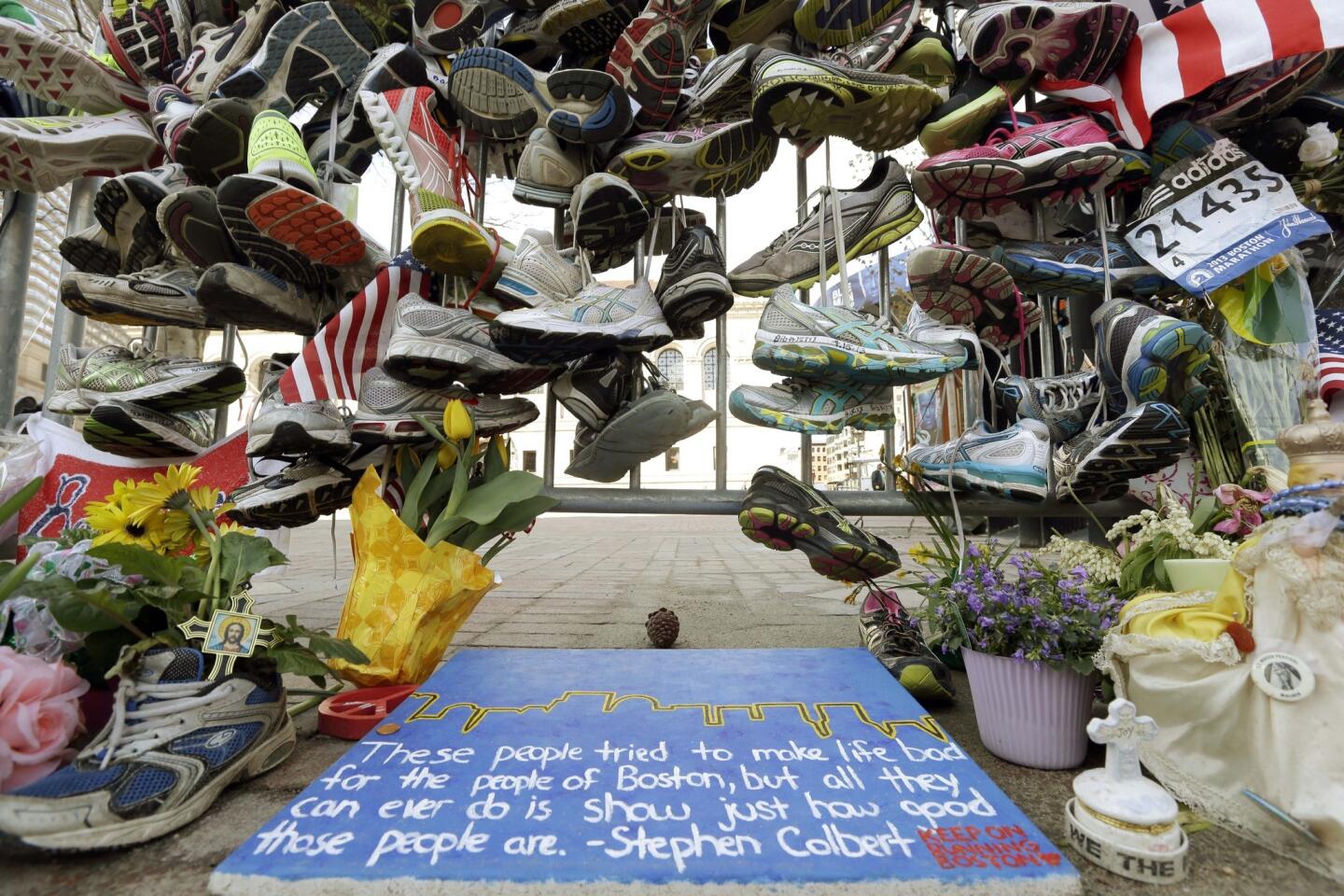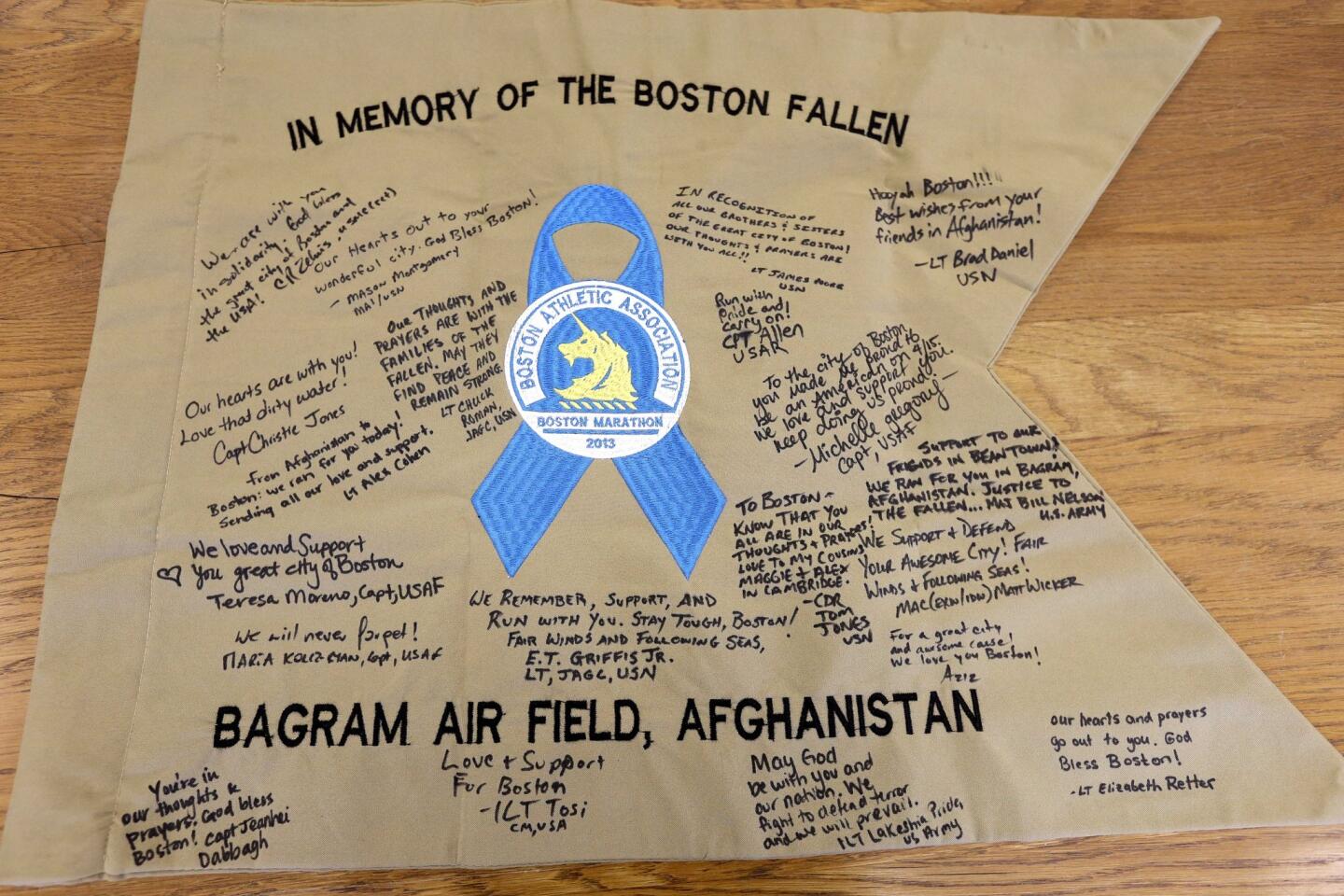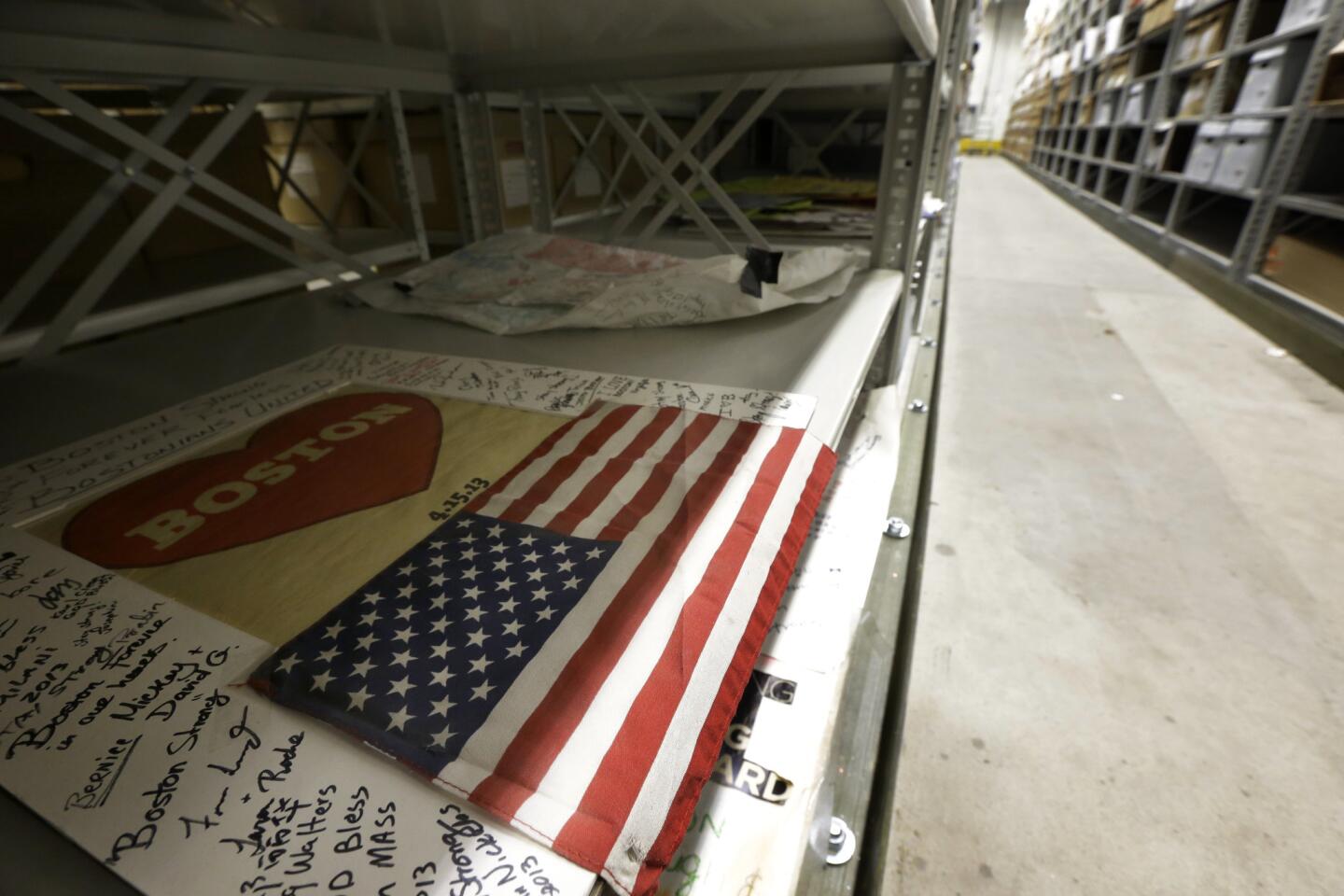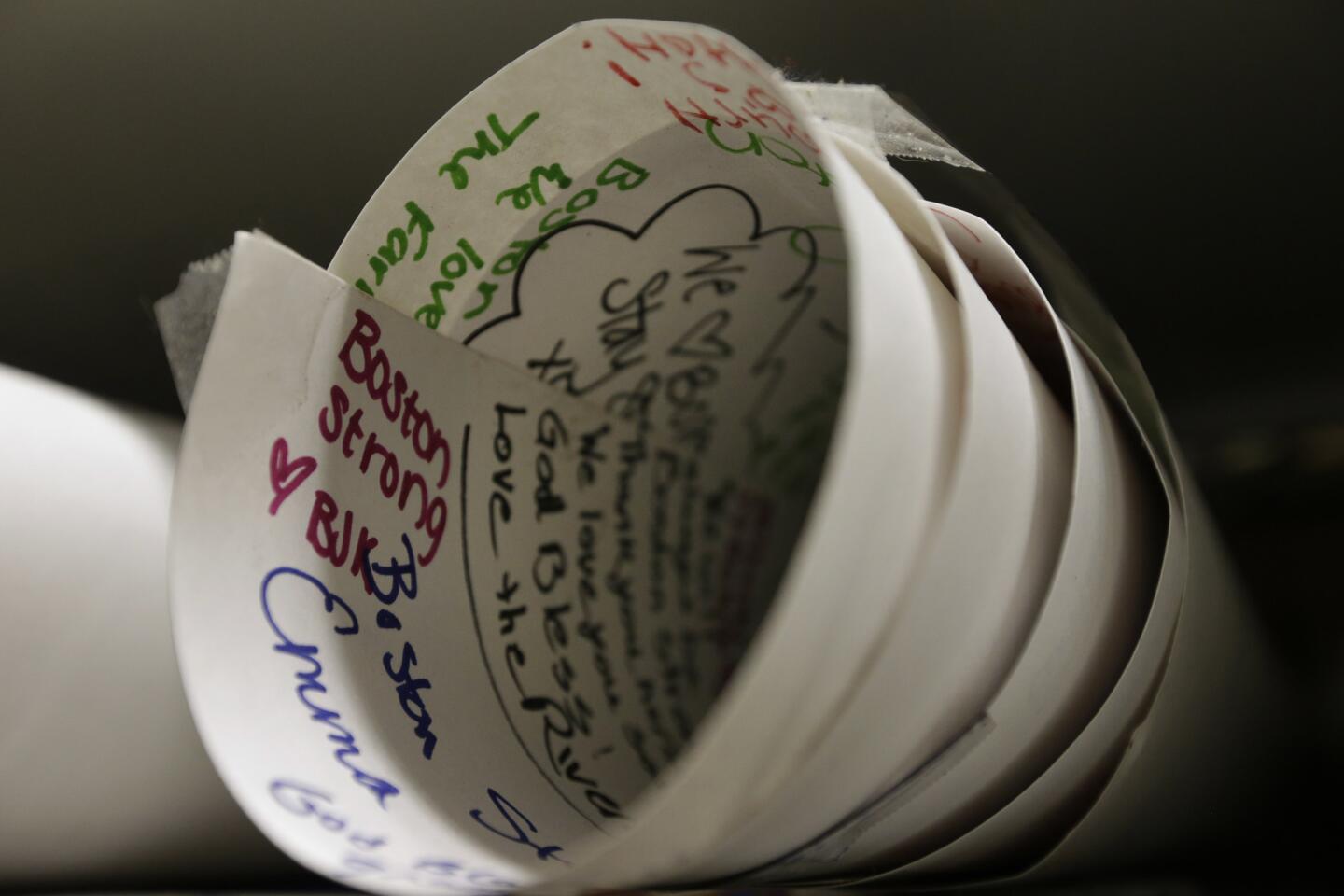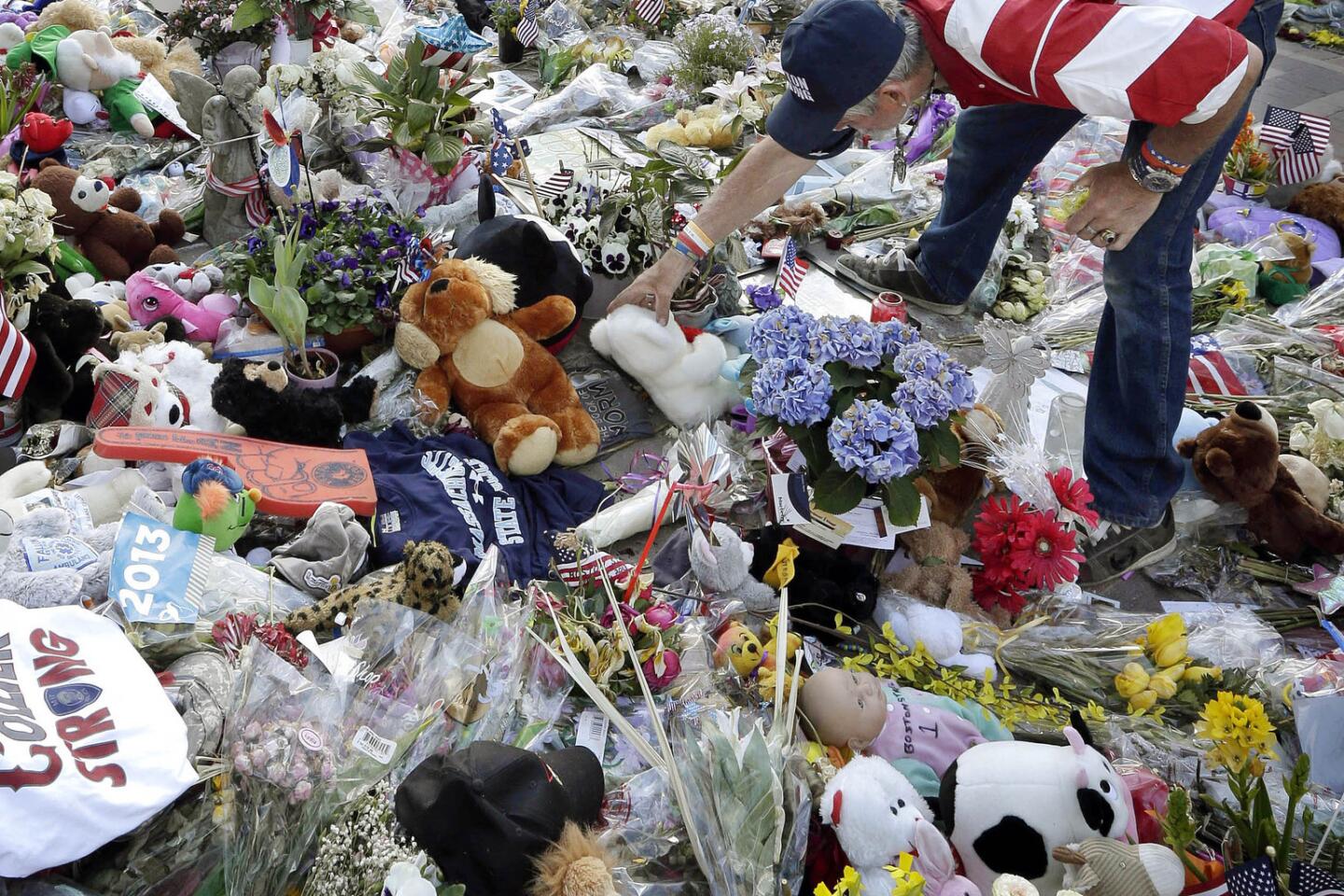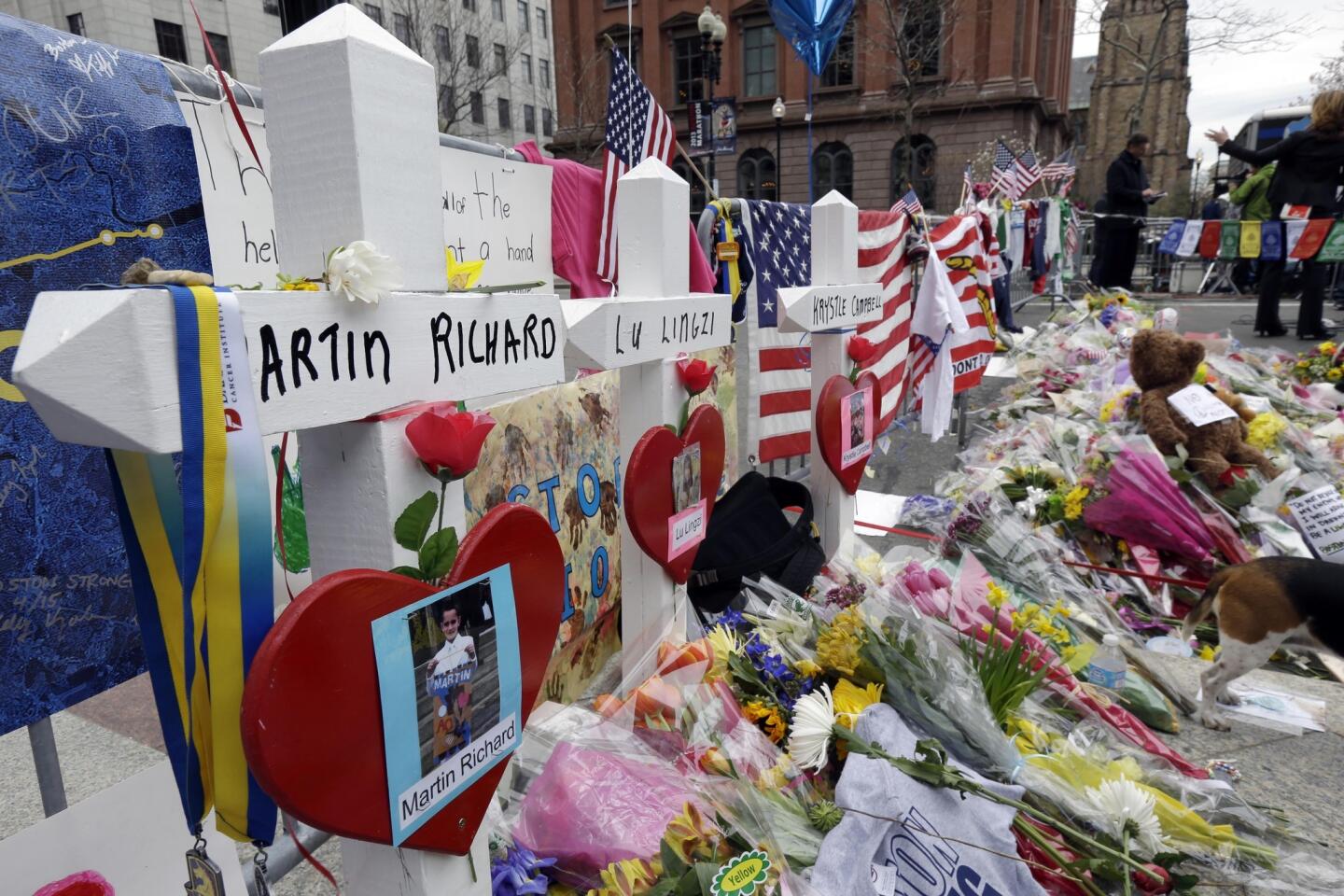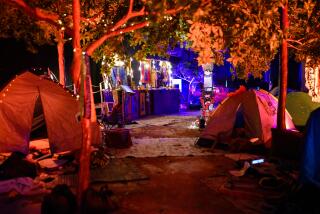Boston marathon bombing exhibit seeks to remember, heal
There are five well-known stages of grief, from denial and anger through bargaining and depression. As the first anniversary of the Boston marathon bombing approaches, the city is moving toward the final stage: acceptance.
As part of that process, the city and some private institutions and companies are working together to display a number of items from the outpouring of remembrances and condolences following the April 15 bombing. Three people were killed and more than 260 were injured after two explosions near the finish line of the famed race.
The exhibit, called “Dear Boston: Messages from the Marathon Memorial,” will open April 7 at the Central Library in Copley Square. It was organized by a partnership that includes the library, Boston City Archives, Boston Art Commission, New England Museum Assn. and Iron Mountain, which did a similar service after the Newtown massacre, where 20 students and six educators were gunned down at Sandy Hook Elementary School.
“‘Dear Boston’ represents our strength and solidarity not only as a city, but also as a community that supports one another through even the most difficult of times,” Boston Mayor Martin J. Walsh said on Monday. “I encourage people – residents and visitors alike – to visit the exhibition, experience the resilience of the people of Boston, and view the messages of hope and healing.”
Among the numerous messages left at Copley Square after the bombings was one from a Sandy Hook mother that reads: “We understand. Sending love and support.” Other notes urged resilience: “Don’t let this stop you. Stay Boston Strong” and “We will run again.”
The items range from many pairs of running shoes to T-shirts, stuffed animals, plastic flowers and special messages written on banners. There are four crosses, each taller than one foot, to remember the three who died and a Massachusetts Institute of Technology police officer fatally shot three days later during a search for the bombing suspects Dzhokhar and Tamerlan Tsarnaev. Tamerlan Tsarnaev died during the hunt for the suspects. Dzhokhar Tsarnaev is awaiting trial on charges that could bring the death penalty if he is convicted.
The long-term home for all of the artifacts is yet to be decided. Until then, paper tributes will be held in the Boston archives and the other artifacts will be kept in storage.
“As a company with its global headquarters in Boston, the events of April 15, 2013, resonated with us deeply,” said William Meaney, president and chief executive of Iron Mountain. “We are honored to be an organizing partner by providing our resources and expertise to the city of Boston’s Marathon Memorial, affording us an opportunity grounded in the principles Iron Mountain was founded upon over 60 years ago: protecting, preserving and creating access to some of the world’s most treasured ideas, information and memories. Rest assured these precious items are safe with us.”
Also available is an online catalog called “Our Marathon,” hosted by Northeastern University and featuring oral histories and other exhibits.
Rainey Tisdale, an independent curator from Boston, has been in charge of selecting which items to choose for the “Dear Boston” exhibit. She said the experience has been emotional.
“Seeing these objects is a pretty intense experience,” Tisdale told the Associated Press. “People poured their hearts out into them.”
More to Read
Sign up for Essential California
The most important California stories and recommendations in your inbox every morning.
You may occasionally receive promotional content from the Los Angeles Times.
